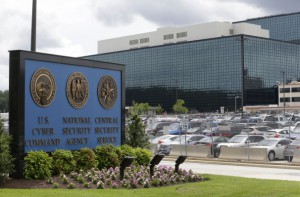Review of the NSA Surveillance Program
The NSA surveillance program has recently sparked considerable controversy. However, in terms of possible interferences with civil liberties, many critics of this limited surveillance program may be missing the point.
Detractors worry that the NSA’s surveillance of telephone calls is a threat to the general public. While the manner in which these suspicious telephone calls are checked is unclear, some experts report that even wiretapping may not be involved. Instead, “pen registers” may be used; and these devices only register basic information such as phone numbers–not even the communication’s contents.
In the post 9/11 world, the common sense approach of mining some data from suspicious telephone calls involving terrorist ties cannot seriously endanger our civil liberties. If the NSA cannot utilize non-invasive, technology-based procedures for analyzing terrorist activities, then they would presumably have to undertake much more direct and intrusive procedures–physical searches or interrogations by authorities. Such direct intrusions on our privacy are much more susceptible to violating civil liberties. Also, they lack the scale, effectiveness, and preventative effects of a sophisticated, high-tech surveillance program, responsibly run for a limited purpose.
What about Data Mining of Electronic Communications?
The public has also been unnerved by the fact that the NSA surveillance program reportedly engages in data mining of electronic communications, such as call records and emails. Apparently the NSA engages in assessing certain code words and establishing patterns in electronic communications. Here, again, there are more questions than answers. Without more information about NSA surveillance, one cannot conclude that private confidential information has in fact been jeopardized.
Has Our Confidential Information Ever Been Safe?
The truth is that we change the nature of what’s confidential or not in our lives regularly, without ever thinking about the consequences. We post alarming amounts of private information on Facebook and other social networking outlets, making our personal data susceptible for the identity thief. Our health, background, and employment information can always be shared with all sorts of institutions and government agencies through the waivers that we sign. Private companies monitor our online activities for marketing and other commercial purposes. Whether we consider the best or the worst case scenario, our personal information is jeopardized every day–mostly through our own lack of vigilance.

Comments